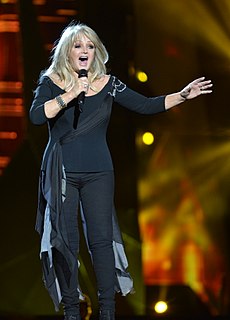A Quote by Munira Mirza
There's been a kind of inverse snobbery about culture. I get the feeling some people would look at Shakespeare and say, that's a bit too intimidating for working-class people.
Related Quotes
I think people were a little bit too concerned about what I would or would not be allowed to say. So let me just get that out of the way and get on to the business of telling, you know, a story, or two, or three, or 15. And also to say, "Okay, look. Here it is, don't worry about it. The restrictions and the watered-down and all the stuff that you thought was gonna happen really isn't the case." So we done got that out the way, and now we can just kind of move on.
If you come from a working-class background, you can't afford to write full time, because you're just not being paid. Basically, all my arguments come down to Marxist doctrine: The world is shaped by money, so the only voices you'll hear are the ones with money behind them. But thankfully, culture and cool are some things that circumvent money, because if you're cool, people will want to give you money - suddenly you shape the market and people start coming to you. Which is why culture has always been a traditional way out for working-class people.
I used to go into pubs and people would want to pick a fight with me. I would hear a group of girls say: 'Oh look, there's Pat Cash.' And then one of them would come up to me and say, 'You think you're so good,' and throw a drink in my face. That kind of reaction from people was a bit of a shock initially, and you don't ever really get used to it.
I suppose I don't have to work, but I do love working. I class myself as a working-class girl, and I've never stopped working. When I'm offered shows here, there and the other, I do an awful lot because I feel other people would love to be offered what I'm offered; who am I to say no? I'm definitely working class, and I always will be.
Bernie Sanders talks about socialism in Scandinavia, and he's correct to point to the huge victories the working class has won there through struggle, such as socialized medicine, free college education, and paid family leave. But if you talk to working people in Sweden or Norway today, you will find out that many of those past gains have been eroded and some virtually eliminated, including massive under-funding of healthcare and other public services and a return to for-profit systems that are unaffordable to working class people.
Some people say I'm saying what they wanna say. Some people don't agree. Some people are outraged. Some people want to see what the album is about. To me, hip-hop's been dead for years. We all should know that, come on. With that being said, then, the object of the game now is to make money off of exploiting it. That's what it's all about - get this money. That's basically what I'm saying.
In terms of President Trump, I really do hope that he does accomplish some of the things he said on the campaign trail. If he is willing to make investments in infrastructure, but not on the backs of the middle class and the working class, and put people back to work, that would be a good thing. If he's serious about making Obamacare better, and not pulling the rug out from 20 million Americans who benefit from it, that would be a good thing too.
Maybe it's naïve, but I would love to believe that once you grow to love some aspect of a culture-its music, for instance -you can never again think of the people of that culture as less than yourself. I would like to believe that if I am deeply moved by a song originating from some place other than my own homeland, then I have in some way shared an experience with the people of that culture. I have been pleasantly contaminated. I can identify in some small way with it and its people.
There's this quote by a writer, Emil Cioran, he's a Romanian writer. He says that you should only put things in books that you would never dare to say to people in real life. So there is that feeling of acute embarrassment, or that you've been too revealing. I think it's some kind of survival mechanism where I never think of the reader, ever. Because then I would start censoring myself.
People are going to say, ‘Well, it’s not very truthful.’ But a songwriter doesn’t care about what’s truthful. What he cares about is what should’ve happened, what could’ve happened. That’s its own kind of truth. It’s like people who read Shakespeare plays, but they never see a Shakespeare play. I think they just use his name.




































